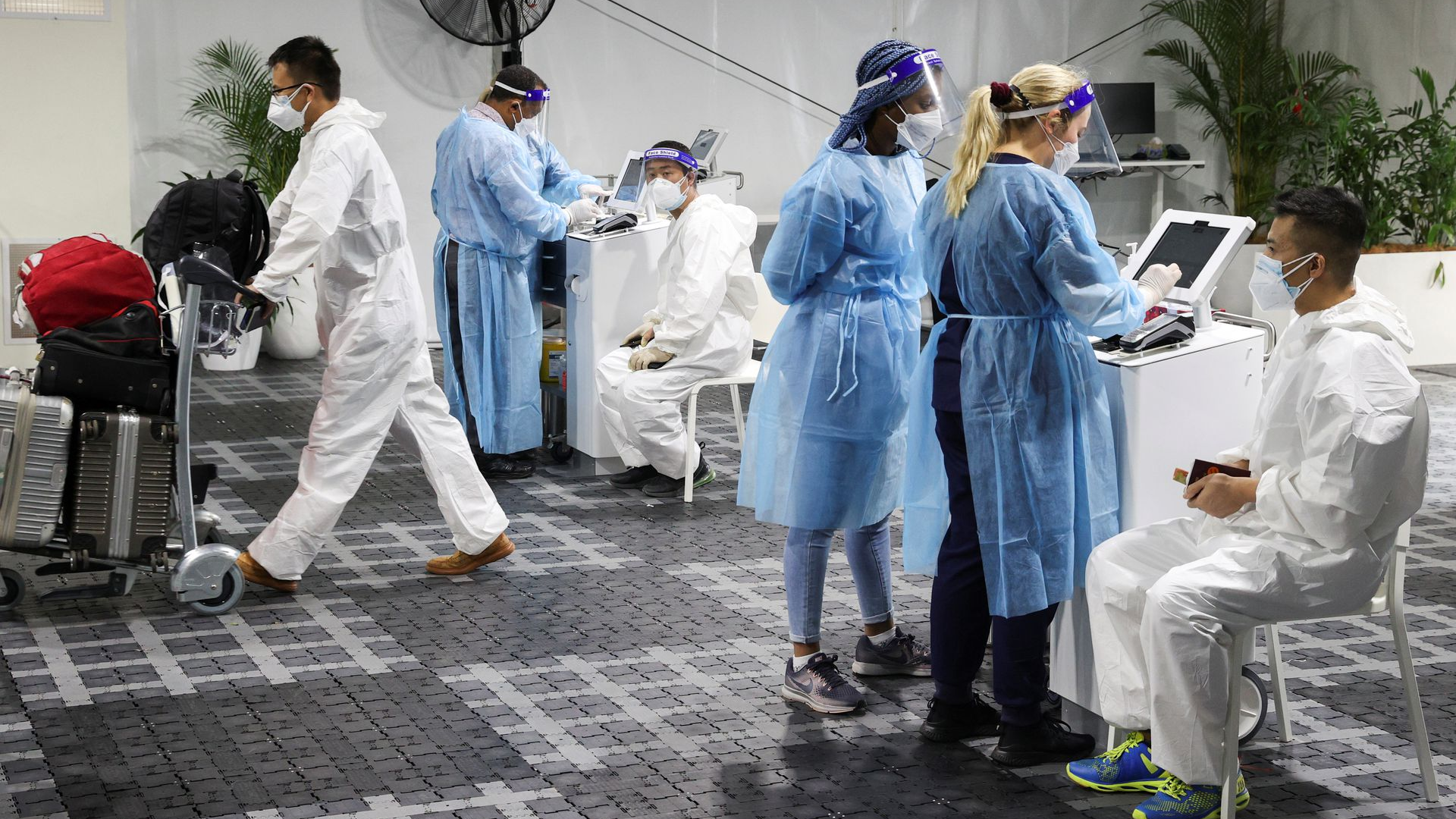
Travellers receive tests for COVID-19 at a pre-departure testing facility, as countries react to the new coronavirus Omicron variant, outside the international terminal at Sydney Airport in Sydney, Australia, November 29, 2021. (Photo: CGTN)
The World Health Organization (WHO) warned Asia-Pacific countries on Friday to boost healthcare capacity and fully vaccinate their people to prepare for a surge in COVID-19 cases as the Omicron variant spreads globally despite travel curbs.
Despite shutting its borders to travel from high-risk southern African countries, Australia became the latest country to report community transmission of the new variant, a day after it was found locally in five U.S. states.
Omicron started gaining a foothold in Asia this week, with cases reported in India, Japan, Malaysia, Singapore and South Korea.
Many governments have tightened travel rules to keep the new variant out, but the WHO's warning to the Asia-Pacific, a region of about 650 million people, stressed that border controls could only buy them time.
"People should not only rely on border measures," Takeshi Kasai, WHO regional director for the western Pacific, told a virtual media briefing.
"What is most important is to prepare for these variants with potential high transmissibility. So far the information available suggests we don't have to change our approach."
Vaccination rates vary from country to country in the Asia-Pacific but there are worrying gaps. Indonesia, the world's fourth most populous country and once Asia's COVID-19 epicenter, has fully inoculated only about 35 percent of its population of 270 million people.
Australia's chief medical officer said Omicron was likely to become the dominant variant globally within months, but at this stage there was no evidence it was any more dangerous than Delta which swept the world earlier this year.
"I suspect within the [next few] months, Omicron will be the new virus in the world," Paul Kelly, the top medical advisor to the Australian government, told reporters.
China, which is maintaining its zero-COVID-19 approach, has not reported a single Omicron case, despite a recent surge in local virus transmissions.


